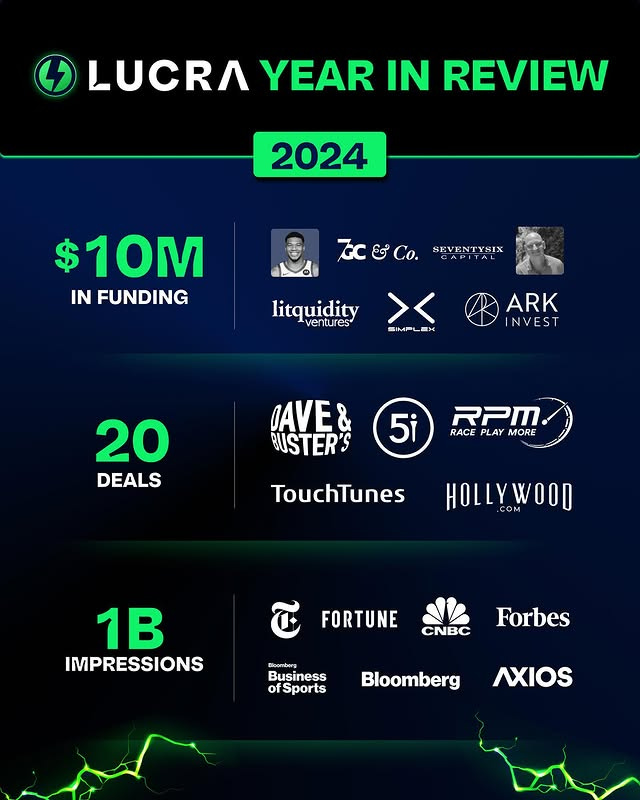Lucra Sports and the Rise of Competitive Socialization
Peer-to-peer interaction is the next frontier in consumer gaming—and Lucra is building the tools, tech, and trust to lead it.
As peer-to-peer competition has grown, Lucra has grown into more than just a gaming company. Lucra is now a peer-to-peer competition network. Its market is endless. We humans compete in every way imaginable daily.
With bold partnerships, product diversification, and a visionary founding team, Lucra is positioned to redefine how people compete, not just in sports, but across nearly every real-life interaction.
Dylan Robbins and Michael Madding built Lucra to solve a problem they experienced: fans wanted to compete with friends, not sportsbooks.
Lucra’s model reflects how today’s users want more autonomy and connection in how they compete.
Lucra’s investor base reflects a deliberate strategy to align with stakeholders who can open new verticals and distribution channels. Marc Lasry brings access to ownership networks and pro sports infrastructure. Giannis Antetokounmpo, as both a global athlete and digital brand, strengthens Lucra’s credibility in youth and international markets. Steve Kuhn’s involvement in Major League Pickleball gives Lucra early traction in emerging sports where monetizable P2P interaction is still being defined. This group isn’t just capital—they represent operating leverage across media, niche sports, and mainstream leagues.
Leveraging those relationships, Lucra has formed extensive partnerships—both expected and unexpected—demonstrating its flexibility, scalability, and vision for the future of social engagement.
Lucra’s P2P SDKs bring seamless, tech-driven infrastructure to popular entertainment venues like Dave & Buster’s and Puttshack, converting casual competitions into real-money, skill-based contests. Opposed to setting odds and determining payouts, Lucra simply facilitates wagers, maintaining the integrity of P2P competitions through a decentralized platform.
Traditionally, Lucra should be limited to high-foot-traffic venues where casual competition happens—places like arcades, bars, or mini-golf.
Wrong.
Lucra scales because it powers behavior, not location. If competition exists, Lucra can monetize it.
P2P competition is everywhere—so why shouldn’t Lucra be?
Lucra’s recent moves—like partnerships with Chess Kings and Playground Productions (the people behind Backyard Baseball)—show its model works far beyond sports. The real insight: if two people can compete at something, Lucra can power it
That makes its TAM enormous. Fitness challenges, Duolingo streaks, sales contests—any measurable, skill-based interaction becomes a monetizable moment. Lucra isn’t just building a product. It’s building the infrastructure layer for peer-to-peer competition everywhere.
All of this raises a larger question: Is Lucra Sports even a sports company?
Lucra isn’t just about sports—it’s a platform for any skill-based, measurable competition. Lucra’s not a sports company. Lucra is a competition company.
Lucra represents the future of competitive socialization. Everyday activities can be gamified and monetized through Lucra’s decentralized model. The future is peer-driven.
Lucra’s success isn’t just in the product—it’s in its ability to create an entirely new category of social interaction. As the lines between physical and digital worlds fade, Lucra is setting the standard for what P2P competition can look like.



